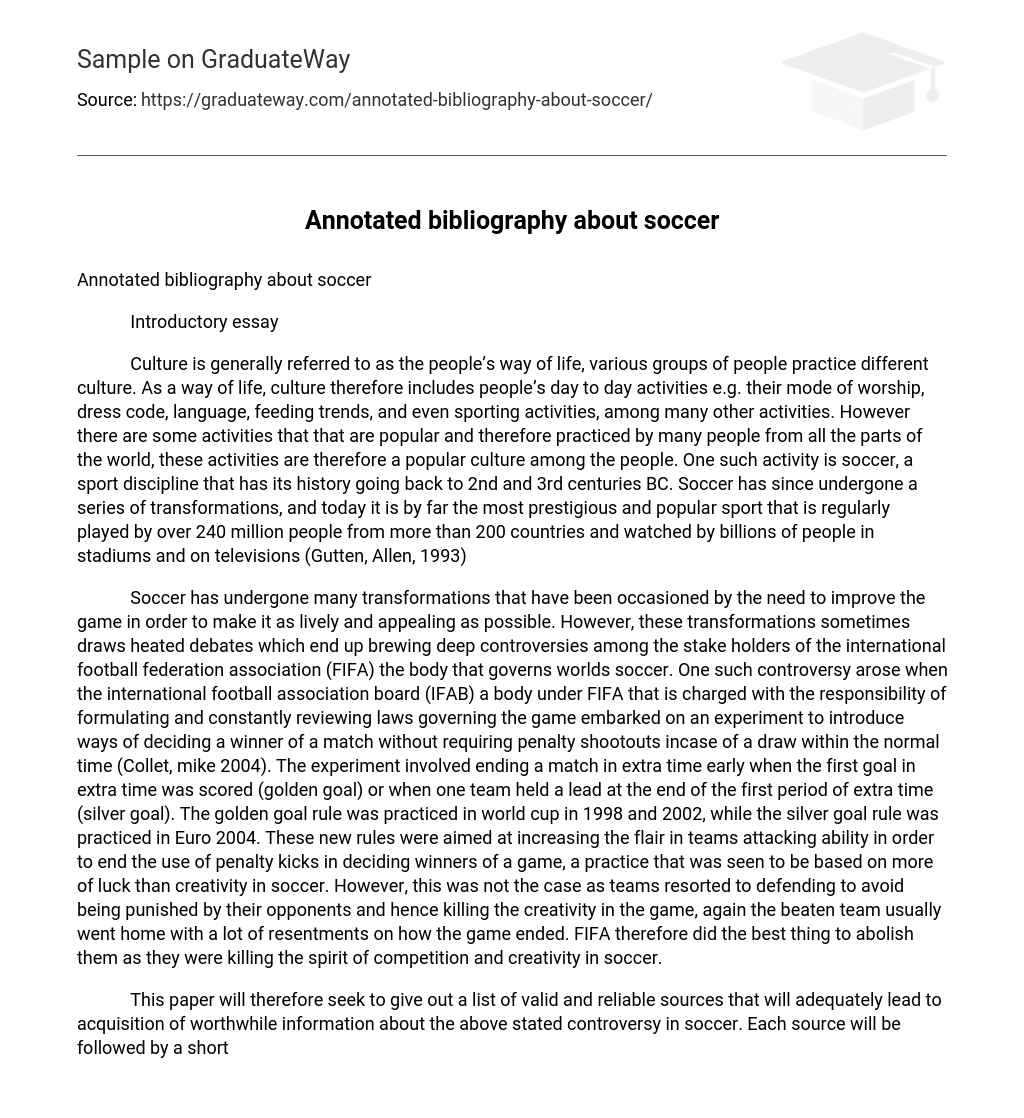Culture is generally referred to as the people’s way of life, various groups of people practice different culture. As a way of life, culture therefore includes people’s day to day activities e.g. their mode of worship, dress code, language, feeding trends, and even sporting activities, among many other activities.
However there are some activities that that are popular and therefore practiced by many people from all the parts of the world, these activities are therefore a popular culture among the people. One such activity is soccer, a sport discipline that has its history going back to 2nd and 3rd centuries BC. Soccer has since undergone a series of transformations, and today it is by far the most prestigious and popular sport that is regularly played by over 240 million people from more than 200 countries and watched by billions of people in stadiums and on televisions (Gutten, Allen, 1993)
Soccer has undergone many transformations that have been occasioned by the need to improve the game in order to make it as lively and appealing as possible. However, these transformations sometimes draws heated debates which end up brewing deep controversies among the stake holders of the international football federation association (FIFA) the body that governs worlds soccer. One such controversy arose when the international football association board (IFAB) a body under FIFA that is charged with the responsibility of formulating and constantly reviewing laws governing the game embarked on an experiment to introduce ways of deciding a winner of a match without requiring penalty shootouts incase of a draw within the normal time (Collet, mike 2004).
The experiment involved ending a match in extra time early when the first goal in extra time was scored (golden goal) or when one team held a lead at the end of the first period of extra time (silver goal). The golden goal rule was practiced in world cup in 1998 and 2002, while the silver goal rule was practiced in Euro 2004. These new rules were aimed at increasing the flair in teams attacking ability in order to end the use of penalty kicks in deciding winners of a game, a practice that was seen to be based on more of luck than creativity in soccer.
However, this was not the case as teams resorted to defending to avoid being punished by their opponents and hence killing the creativity in the game, again the beaten team usually went home with a lot of resentments on how the game ended. FIFA therefore did the best thing to abolish them as they were killing the spirit of competition and creativity in soccer.
This paper will therefore seek to give out a list of valid and reliable sources that will adequately lead to acquisition of worthwhile information about the above stated controversy in soccer. Each source will be followed by a short annotation that will give an insight on what to find in them, and how the information got will help in understanding the controversy more. The sources which were carefully selected and evaluated will help players, coaches, or sports analysts who may be interested in learning about ways of determining a winner in a game of soccer or even anybody interested in carrying out a research on soccer in general.
Work cited
- Guttman, Allen, 1993, Available at; Accessed on October 24, 2008
- Collet, mike 2004, Available at; Accessed on October 24, 2008





